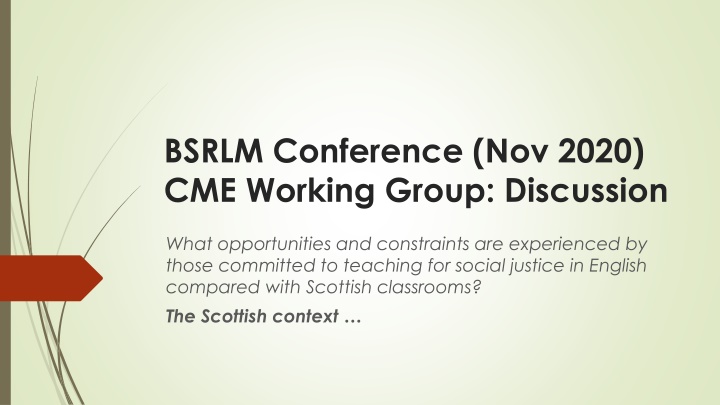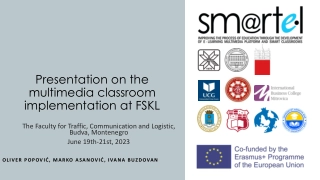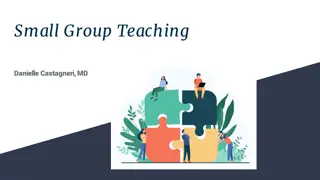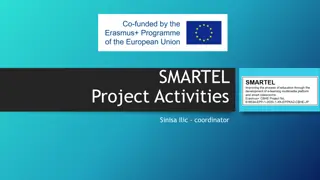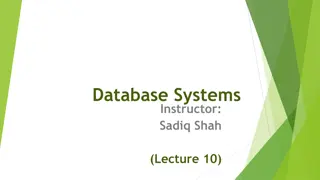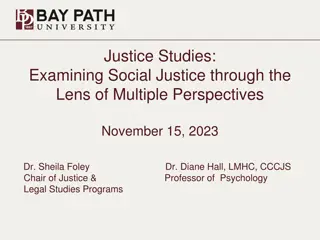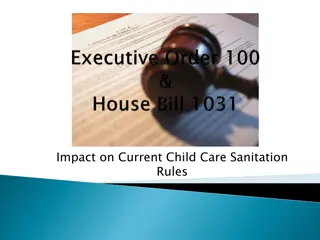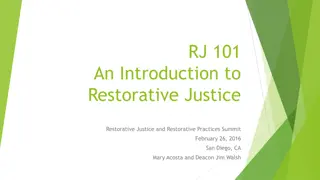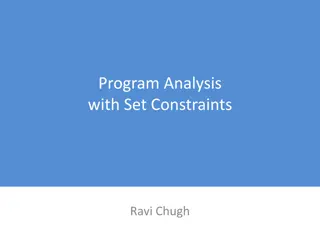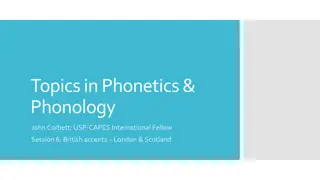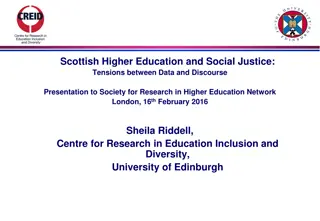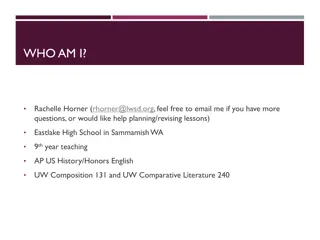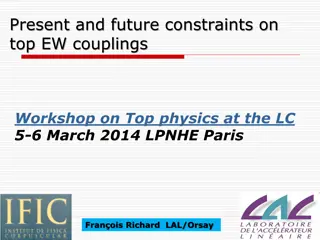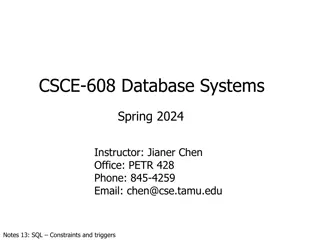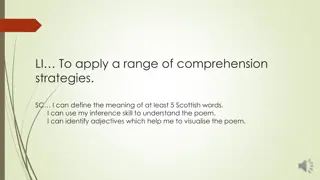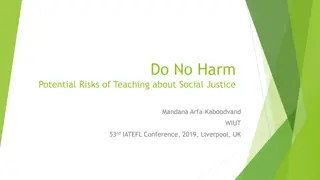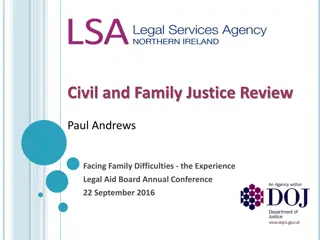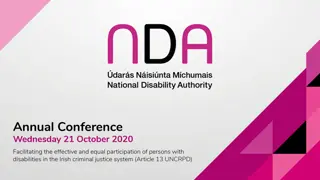Comparing Opportunities and Constraints in Teaching for Social Justice in English and Scottish Classrooms
Discussion on the challenges and prospects faced by educators dedicated to teaching for social justice in English and Scottish classrooms. The focus is on the differences in the educational systems and policies, emphasizing values of sustainability, equality, and justice. The Scottish context highlights commitments to democracy, social justice, and global citizenship. The article also touches on the Scottish government's initiatives to support teachers, alongside concerns regarding the Curriculum for Excellence and poor PISA results.
Download Presentation

Please find below an Image/Link to download the presentation.
The content on the website is provided AS IS for your information and personal use only. It may not be sold, licensed, or shared on other websites without obtaining consent from the author.If you encounter any issues during the download, it is possible that the publisher has removed the file from their server.
You are allowed to download the files provided on this website for personal or commercial use, subject to the condition that they are used lawfully. All files are the property of their respective owners.
The content on the website is provided AS IS for your information and personal use only. It may not be sold, licensed, or shared on other websites without obtaining consent from the author.
E N D
Presentation Transcript
BSRLM Conference (Nov 2020) CME Working Group: Discussion What opportunities and constraints are experienced by those committed to teaching for social justice in English compared with Scottish classrooms? The Scottish context
The Professional Values and Personal Commitment core to being a teacher are: Social justice Embracing locally and globally the educational and social values of sustainability, equality and justice and recognising the rights and responsibilities of future as well as current generations. Committing to the principles of democracy and social justice through fair, transparent, inclusive and sustainable policies and practices in relation to: age, disability, gender and gender identity, race, ethnicity, religion and belief and sexual orientation. Valuing as well as respecting social, cultural and ecological diversity and promoting the principles and practices of local and global citizenship for all learners. Demonstrating a commitment to engaging learners in real world issues to enhance learning experiences and outcomes, and to encourage learning our way to a better future. Standards for Registration Dec 2012 5 Respecting the rights of all learners as outlined in the United Nations Convention on the Rights of the Child (UNCRC) and their entitlement to be included in decisions regarding their learning experiences and have all aspects of their well- being developed and supported.
2018: All pupils to have an entitlement to Learning for Sustainability that includes: - Sustainable development - Global citizenship - Outdoor learning - More recently rights education has often been added in to this list. LfS is strongly slanted towards outdoor learning, The first two aspects are closely aligned with the UN sustainable development goals which the Scottish govt. uses for its performance monitoring. Many schools sign up to eco-schools, rights respecting schools, connecting classrooms etc. All teachers have a responsibility to make a contribution to LfS my research project focuses on maths teachers and global citizenship.
The Scottish government pays for every probationer teacher to receive input from a development education centre. This is funded by an EU project so Brexit will reduce the opportunities for teachers
But!!!! Radically different Curriculum For excellence fraught with problems (developed by devolved govt 2000 onwards and implemented from 2010) Poor PISA results 2015 led to OECD review commissioned National Improvement Framework Scottish National Standardised Assessments 2017 New regional structure of LAs 2018 Poor Pisa results 2019 led to OECD review commissioned Watch this space! Does the SNP government talk Nordic social democracy whilst doing neoliberalism?
My position: An insider and an outsider - I have worked for many years as a classroom teacher. - I have taught in Scotland (school and ITE) but I am not Scottish. - I am part sponsored by a DEC. My research: - previously at BSRLM a small project with ITE maths students - I am now focussing on the (atypical) maths teachers who choose to engage with Global Citizenship through the courses offered by a DEC. Three layers of data gathering - ethnographic description of the landscape - teachers postings to online PD modules - recorded conversations with teachers.
To explore the contours of what is currently possible in the context of secondary mathematics classrooms in Scotland in order to better understand what might be possible in future. Sedra arrived in the UK with no belongings and has been dispersed to Glasgow. She is given a phone by the refuweege project. She wants to call her family back in Yemen during their evening meal time which starts around 7pm. Early thoughts: There are important ways in which maths teachers might engage with global issues outwith their classrooms and standard curriculum e.g. Interdisciplinary projects, and whole school initiatives such as Fair Trade Schools, Rights Respecting Schools, Connecting Classrooms, Ecoschools Does that make connections within classrooms less likely? Yemen uses standard Arab time which is GMT + 3 Glasgow uses BST which is GMT + 1 Are issues of talk, voice, authority restricting GC in maths? There is more scope with the BGE (broad general education S1/2 aged 12 14) than in the senior phase but The applications of maths qualification is increasingly popular and questions could be asked in global contexts. What time should Sedra make the call?
BSRLM Conference (Nov 2020) CME Working Group: Discussion What opportunities and constraints are experienced by those committed to teaching for social justice in English compared with Scottish classrooms? The English context
The Teachers Standards in England Unlike in Scotland, the Teachers Standards in England make no specific mention of social justice . However, there are some extracts that might be interpreted as relevant: Standard 1: establish a safe and stimulating environment for pupils, rooted in mutual respect set goals that stretch and challenge pupils of all backgrounds, abilities and dispositions demonstrate consistently the positive attitudes, values and behaviour which are expected of pupils. Standard 4: promote a love of learning and children s intellectual curiosity Standard 5: have a secure understanding of how a range of factors can inhibit pupils ability to learn, and how best to overcome these have a clear understanding of the needs of all pupils, including those with special educational needs; those of high ability; those with English as an additional language; those with disabilities; and be able to use and evaluate distinctive teaching approaches to engage and support them. Part Two: uphold public trust in the profession and maintain high standards of ethics and behaviour, within and outside school, by: treating pupils with dignity, building relationships rooted in mutual respect showing tolerance of and respect for the rights of others not undermining fundamental British values, including democracy, the rule of law, individual liberty and mutual respect, and tolerance of those with different faiths and beliefs
Spiritual, Moral, Social & Cultural development Promoting fundamental British values as part of SMSC in schools Departmental advice for maintained schools (DfE, 2014): Maintained schools have obligations under section 78 of the Education Act (2002) which requires schools, as part of a broad and balanced curriculum, to promote the spiritual, moral, cultural, mental and physical development of pupils at the school and of society. Through their provision of SMSC, schools should: enable students to develop their self-knowledge, self-esteem and self-confidence; enable students to distinguish right from wrong and to respect the civil and criminal law of England; encourage students to accept responsibility for their behaviour, show initiative, and to understand how they can contribute positively to the lives of those living and working in the locality of the school and to society more widely; enable students to acquire a broad general knowledge of and respect for public institutions and services in England; further tolerance and harmony between different cultural traditions by enabling students to acquire an appreciation of and respect for their own and other cultures; encourage respect for other people; and encourage respect for democracy and support for participation in the democratic processes, including respect for the basis on which the law is made and applied in England.
Fundamental British values Promoting fundamental British values as part of SMSC in schools Departmental advice for maintained schools (DfE, 2014): The list below describes the understanding and knowledge expected of pupils as a result of schools promoting fundamental British values. an understanding of how citizens can influence decision-making through the democratic process; an appreciation that living under the rule of law protects individual citizens and is essential for their wellbeing and safety; an understanding that there is a separation of power between the executive and the judiciary an understanding that the freedom to choose and hold other faiths and beliefs is protected in law; an acceptance that other people having different faiths or beliefs to oneself (or having none) should be accepted and tolerated, and should not be the cause of prejudicial or discriminatory behaviour; and an understanding of the importance of identifying and combatting discrimination. Guidance: Plan your relationships, sex and health curriculum (DfE, 2020): Schools should not under any circumstances use resources produced by organisations that take extreme political stances on matters. Examples of extreme political stances include a publicly stated desire to abolish or overthrow democracy, capitalism, or to end free and fair elections
National Curriculum Programmes of Study National Curriculum (2007) programmes of study: Mathematics equips pupils with uniquely powerful ways to describe, analyse and change the world. It can stimulate moments of pleasure and wonder for all pupils when they solve a problem for the first time, discover a more elegant solution, or notice hidden connections. National Curriculum (2014) programmes of study: A high-quality mathematics education therefore provides a foundation for understanding the world, the ability to reason mathematically, an appreciation of the beauty and power of mathematics, and a sense of enjoyment and curiosity about the subject. The sections on key concepts , key processes and curriculum opportunities from the 2007 National Curriculum were removed from the 2014 version including: Creativity Posing questions and developing convincing arguments Applications and implications Recognising the rich historical and cultural roots of mathematics Engaging in mathematics as an interesting and worthwhile activity Critical understanding Recognising the limitations & scope of a model or representation ... Curriculum opportunities work on open and closed tasks in a variety of real and abstract contexts work collaboratively as well as independently
Some historical context Includes personal reflections (Pete started teaching in London in 1987) 1987: Section 28 of the Local Authority Act: prohibited local authorities from promoting the teaching in any maintained school of the acceptability of homosexuality as a pretended family relationship Climate of insecurity amongst teachers wary about tackling controversial issues; Section 28 repealed in 2003 (2000 in Scotland). 2002: Citizenship became a statutory National Curriculum subject: Remains statutory (secondary) and non-statutory (primary) subject in 2014 National Curriculum (which only local authority maintained schools are obliged to follow); Gave confidence to teachers to tackle controversial and social justice issues; 2002: SMSC introduced through legislation (*see previous slides): Note all schools in England are required to promote students SMSC development; Became common to expect teachers in all subjects to address SMSC in lessons; 2007/2014: Watering down of TMSJ opportunities in National Curriculum (*). 2016: Guidance on Fundamental British values issued to maintained schools (*): Shifted focus of SMSC towards FBV (original SMSC guidance difficult to locate); Reduced expectation on teachers to address SMSC in every subject.
Experiences from collaborative research I have presented findings from two projects at previous BSRLM conferences: The Teaching Maths for Social Justice research project; The Visible Maths Pedagogy research project. Findings from both projects included: A significant impact on teacher researchers thinking and practice; The development of practical strategies for translating theories relating to equity and social justice into practice in mathematics classrooms; A positive impact on students engagement with, and attitudes towards, mathematics (particularly for disadvantaged and previously alienated students). Factors that enabled teacher researchers to overcome constraints: Establishment of mutually supportive networks of teacher/academic researchers; A collaborative and participatory research design facilitating teacher agency; Critical reflection of practice based on action research cycles and protocols; Evaluations of teaching ideas and activities based on students experiences.
Future opportunities for TMSJ? An idea currently under formulation (planned launch in January 2021): Establish a network of Mathematics Teachers for Social Justice; Initial meeting in Spring 2021 (Saturday morning or twilight) probably online; To be led by mathematics teachers with an interest in SJ with support from teacher educators and academics (teacher-led and research-informed); Face-to-face meetings initially to be held in London (funding constraints); Subsequent actions and activities likely to include: Setting up a website to share good practice via blogs and reports. Develop and share teaching ideas/activities amongst group and more widely. Establish an online discussion forum to keep in touch and share updates. Reading group to meet periodically and engage with relevant research literature. Host seminars/workshops (initially at UCL IOE) with invited speakers/facilitators. Foster and disseminate collaborative research projects in schools.
Questions to prompt discussion How does the policy climate in which a maths teacher works impact on their classroom practice in relation to social justice? To what extent do differences in the professional standards documents for England and Scotland impact on practice? What are the implications of the various levels of deregulation of schools in England compared with Local authority run schools in Scotland? Is it appropriate or even realistic to ask teachers to be neutral when teaching maths in controversial contexts? [copy and paste into chat]
More about the CME working group The Critical Maths Education (CME) Working Group (launched in November 2015) is open to all and aims to promote research that brings about positive social change through mathematics education. CME aims to identify and challenge ways in which mathematics is commonly used to maintain the status quo and reproduce inequities in society. It proposes an alternative and empowering conceptualisation of mathematics, which enables people to better understand their social, political and economic situations, and to advocate and bring about changes leading to a more just and equitable society.
